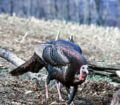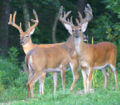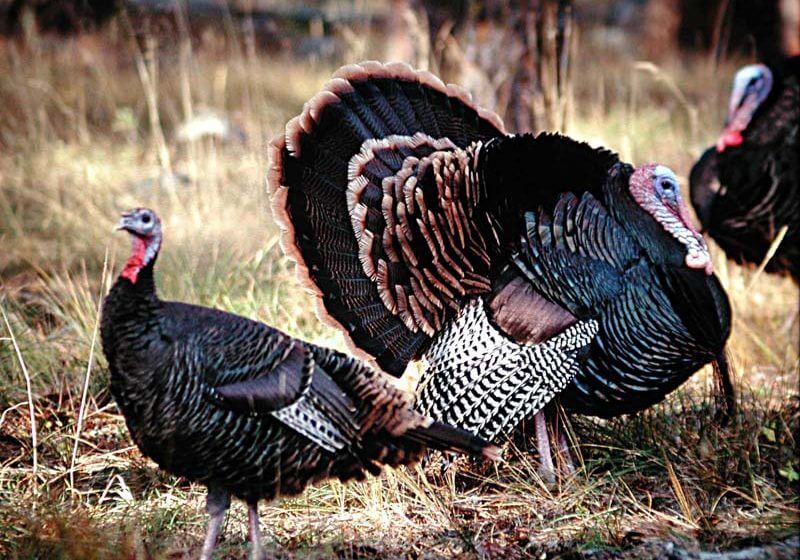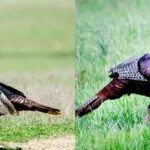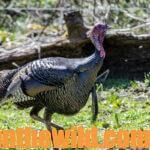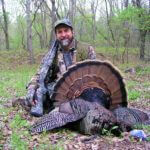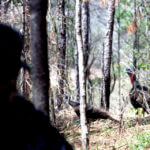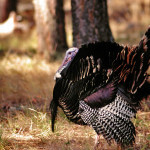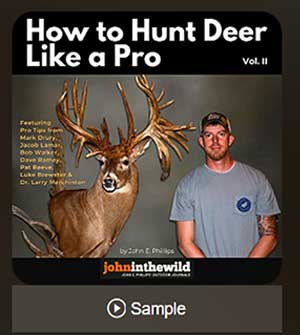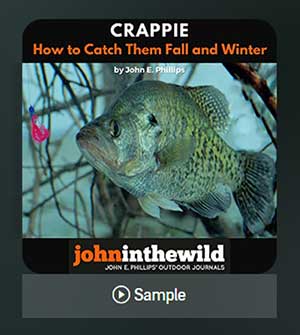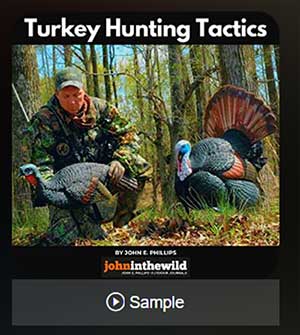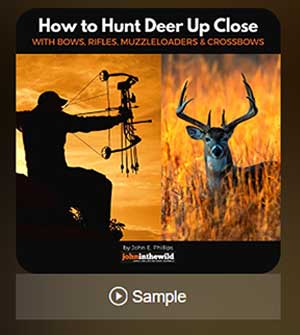Editor’s Note: Will Primos founded what is now known as Primos Hunting in the 1970s (www.primos.com), and he says, “I love to turkey hunt.”
 Often in seminars I’m asked, “I know the place where I hunt has turkeys. I see them out in the fields, and I see them in the woods. But during spring gobbling season, those turkeys don’t talk. Why are turkeys not gobbling in the spring, and how do you hunt turkeys that don’t gobble?”
Often in seminars I’m asked, “I know the place where I hunt has turkeys. I see them out in the fields, and I see them in the woods. But during spring gobbling season, those turkeys don’t talk. Why are turkeys not gobbling in the spring, and how do you hunt turkeys that don’t gobble?”
Turkeys are creatures of habit. They’re built to survive, and they don’t forget much. Every day those turkeys have to earn their livings. They don’t have to take kids to school, they don’t have to go to the dentist or doctor, and they don’t have anything to do but eat, drink, breathe and stay alive. Primarily, turkeys earn their livings by using their ears and their eyes to spot danger. Like I’ve mentioned before, a turkey knows, as soon as he pokes his head out of the egg, that everything out in the big wide world wants to eat him – including feral dogs, coyotes, bobcats, foxes, hawks owls, and humans – just to name a few predators. If he survives to be older than 2-years old, he’ll often learn that the more he gobbles, the more likely he is to call in a predator.
Therefore, instead of concentrating on calling turkeys, you may have to hunt turkeys like you hunt deer by looking for tracks and droppings. If you don’t spot fresh tracks and fresh droppings, there’s a very good chance that the turkeys you’ve seen earlier in the summer, fall and winter have moved to other locations during the spring. As strange as that may seem, I have seen this phenomenon many times. I think wildlife biologists also have done some research that tends to indicate that turkeys may travel to different locations at various times of the year for different reasons – especially in flood zones where creeks and rivers often get out of their banks and flood the hardwood bottoms and/or the agricultural fields. Over the years, turkeys in certain areas know that during the spring, the rivers, the creeks and the fields where they live will become flooded. When spring rains overload the rivers and creeks with water, to have successful nesting and to raise their poults, turkeys realize they have to move to higher ground during the spring. Also, to breed hens, the gobblers have to move to higher ground to find hens.
 A simple answer to this difficult question is: when turkeys don’t gobble, make sure that you still have turkeys living on the property that you have permission to hunt. The way to make sure is to look for fresh turkey droppings and/or fresh tracks. If you don’t have any fresh droppings or fresh tracks, the turkeys that have been on your property most of the year may be on someone else’s land.
A simple answer to this difficult question is: when turkeys don’t gobble, make sure that you still have turkeys living on the property that you have permission to hunt. The way to make sure is to look for fresh turkey droppings and/or fresh tracks. If you don’t have any fresh droppings or fresh tracks, the turkeys that have been on your property most of the year may be on someone else’s land.
If your land has a high population of predators or heavy turkey-hunting pressure in the early part of the season, this reason may be why you’re not hearing turkeys. So, here’s my advice. If you don’t have turkeys gobbling in the spring on the land you hunt, find another piece of property to hunt where the turkeys are gobbling.
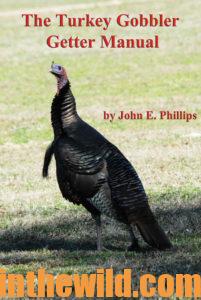 To learn more about turkey hunting, check out John E. Phillips’s book, “PhD Gobblers,” available in Kindle and in print at http://amzn.to/XYTKnW. To get a free eBook, “The Turkey Gobbler Getter Manual,” go to https://www.dropbox.com/sh/ps7hp9vdlek764m/AACP4EjpWIPxf8azkeWajvsMa?dl=0.
To learn more about turkey hunting, check out John E. Phillips’s book, “PhD Gobblers,” available in Kindle and in print at http://amzn.to/XYTKnW. To get a free eBook, “The Turkey Gobbler Getter Manual,” go to https://www.dropbox.com/sh/ps7hp9vdlek764m/AACP4EjpWIPxf8azkeWajvsMa?dl=0.

